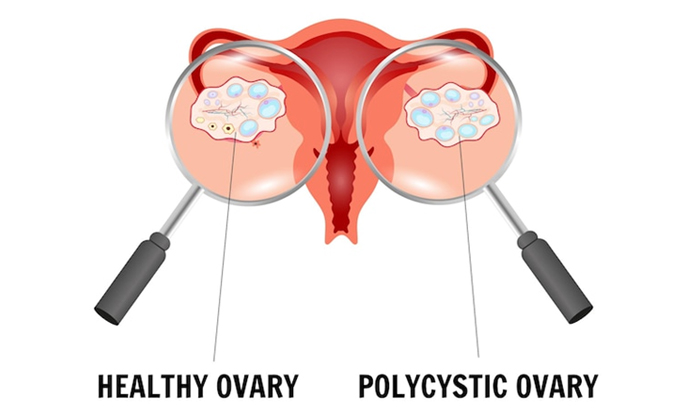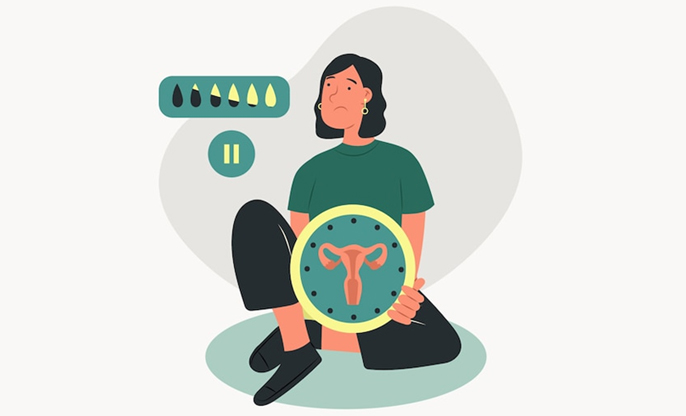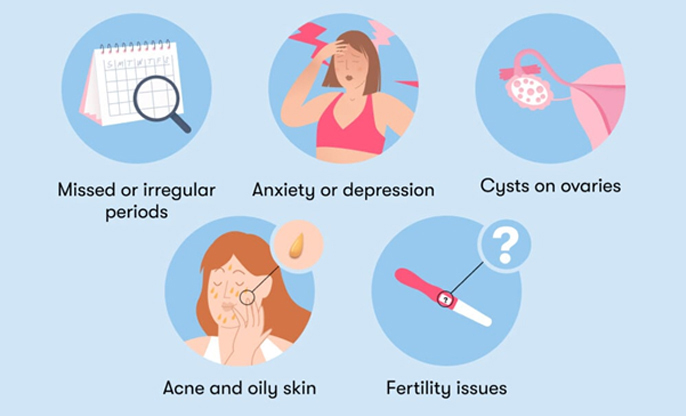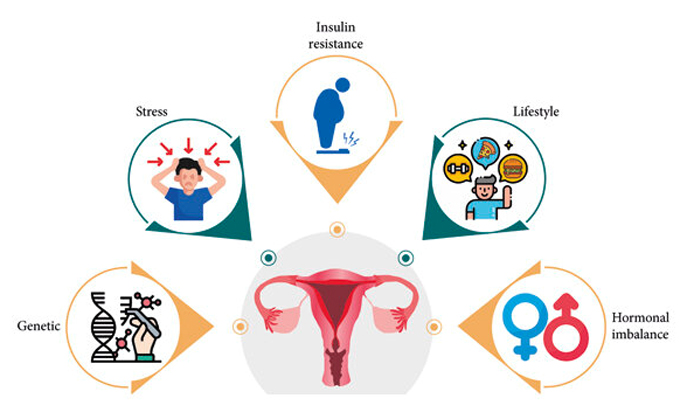
Polycystic Ovary Syndrome is a journey that affects every facet of life. It challenges our menstrual cycle, fertility, appearance, and even increases our risk for serious conditions like insulin resistance, type 2 diabetes, and heart issues. But here's how we can empower ourselves in managing this complex condition:
Lifestyle Changes
We Can Make
- Revamping Our Diet:
○ Opt for Low-Glycemic Foods:
Integrating whole grains, lean proteins, and lots of veggies helps manage
insulin levels and mitigate the effects of PCOS.
○ Eat Balanced Meals:
Consistent, nutritious meals can help stabilize insulin and manage weight.
○ Cut Back on Processed Foods: Reducing sugary snacks and highly processed items can drastically improve symptoms.
- Committing to Regular Exercise:
○ Activities like aerobics and resistance training not only combat insulin resistance but also aid in shedding excess weight, enhancing both metabolic profiles and ovulation.
- Focusing on Weight Management:
○ Losing even a small percentage of body weight can profoundly impact menstrual regularity and fertility.
Medical
Interventions to Consider
- Hormonal Treatments Might Help:
○ Birth Control Pills: Great
for regulating menstrual cycles, reducing androgen levels, and alleviating
acne.
○ Anti-Androgens: Medications like spironolactone can lessen hair growth and clear up skin.
- Exploring Metformin:
○ Commonly
used for diabetes, it also improves insulin resistance and may boost ovulation.
- Looking Into Fertility Treatments:
○ If starting a family is part of your plan, treatments like Clomiphene citrate can trigger ovulation, sometimes needing more advanced approaches.
Support for Our
Emotional Well-being
The emotional toll of PCOS is not to be underestimated. The stress from visible symptoms and fertility challenges can spiral into depression or anxiety. Seeking therapy or connecting with support groups can provide solace and a space to share our experiences and coping strategies.
Keeping Up with
Regular Health Checks
Staying in touch with our healthcare provider, keeping track of our metabolic health, and monitoring our reproductive health are essential. Regular visits help catch any changes early and adjust our management plan as needed.
In Essence
Managing PCOS isn't straightforward and involves tackling various symptoms with a mix of lifestyle tweaks, medical care, and emotional support. It's about creating a balanced approach that addresses both the physical and psychological aspects. By staying proactive and informed, we can navigate PCOS with confidence and lead a fulfilling life, turning challenges into opportunities for growth and self-care.




















